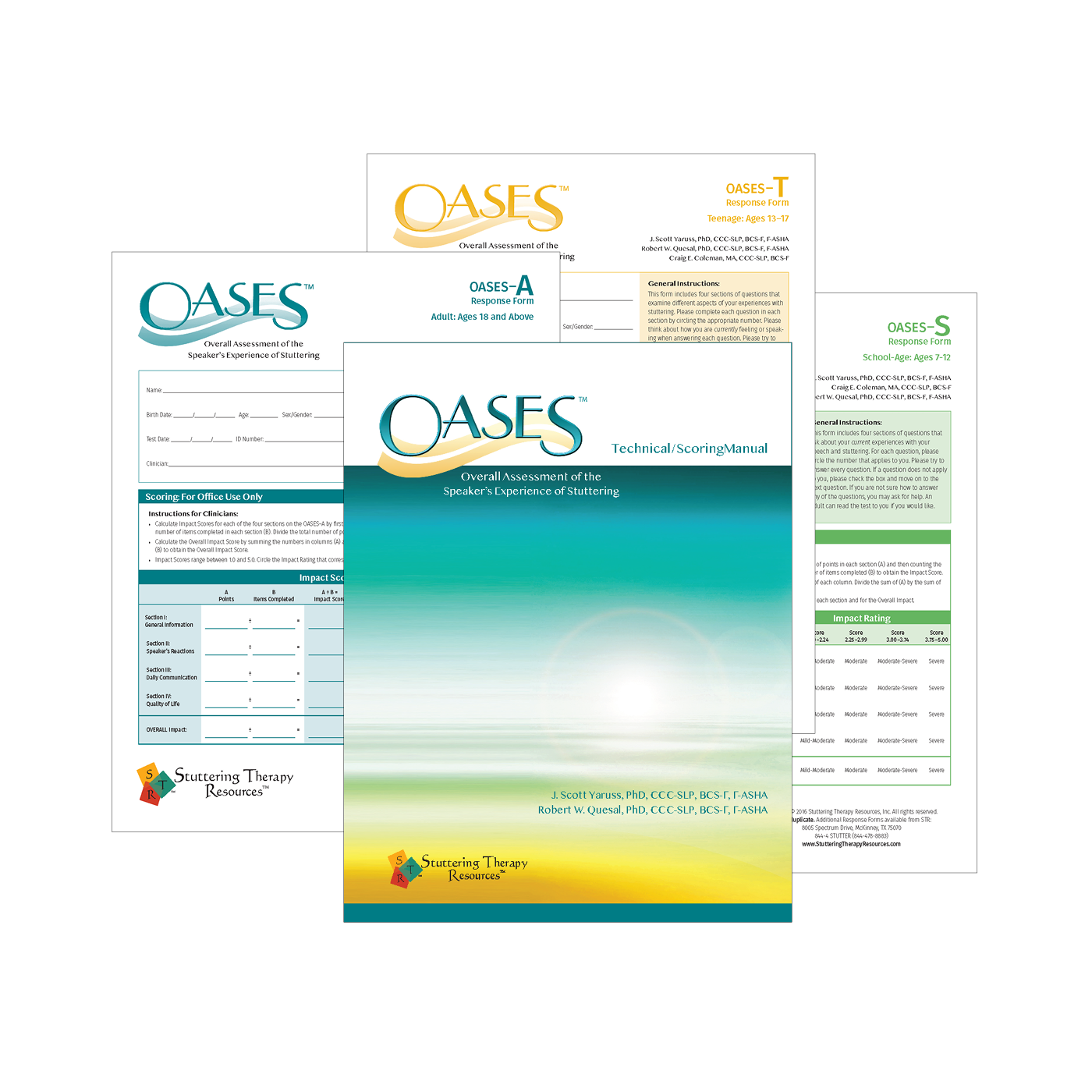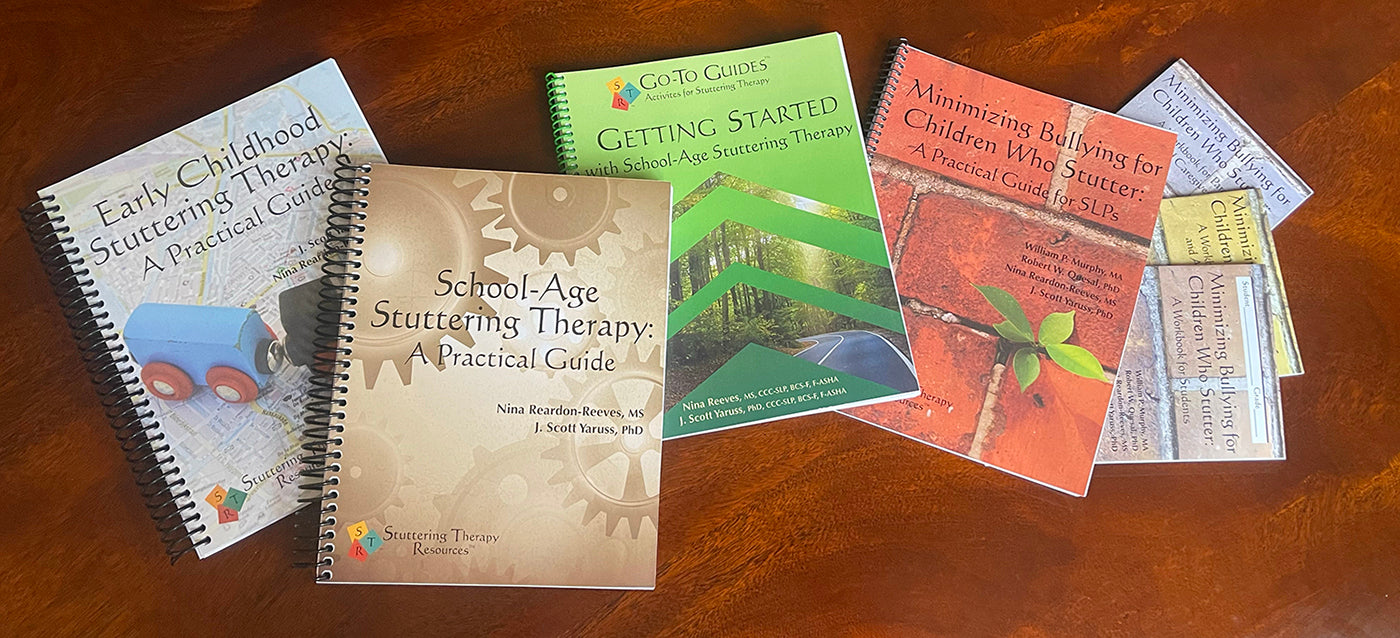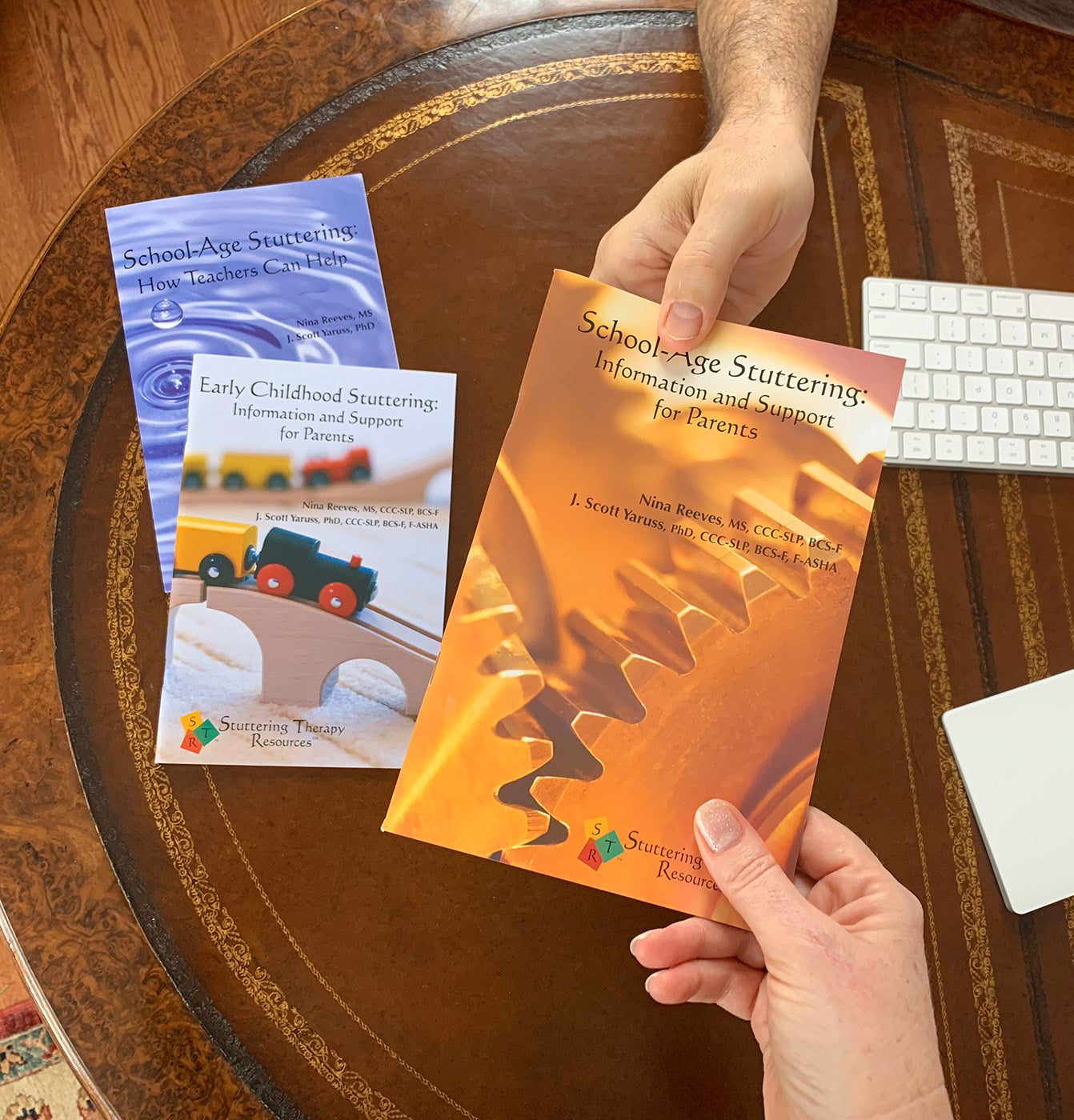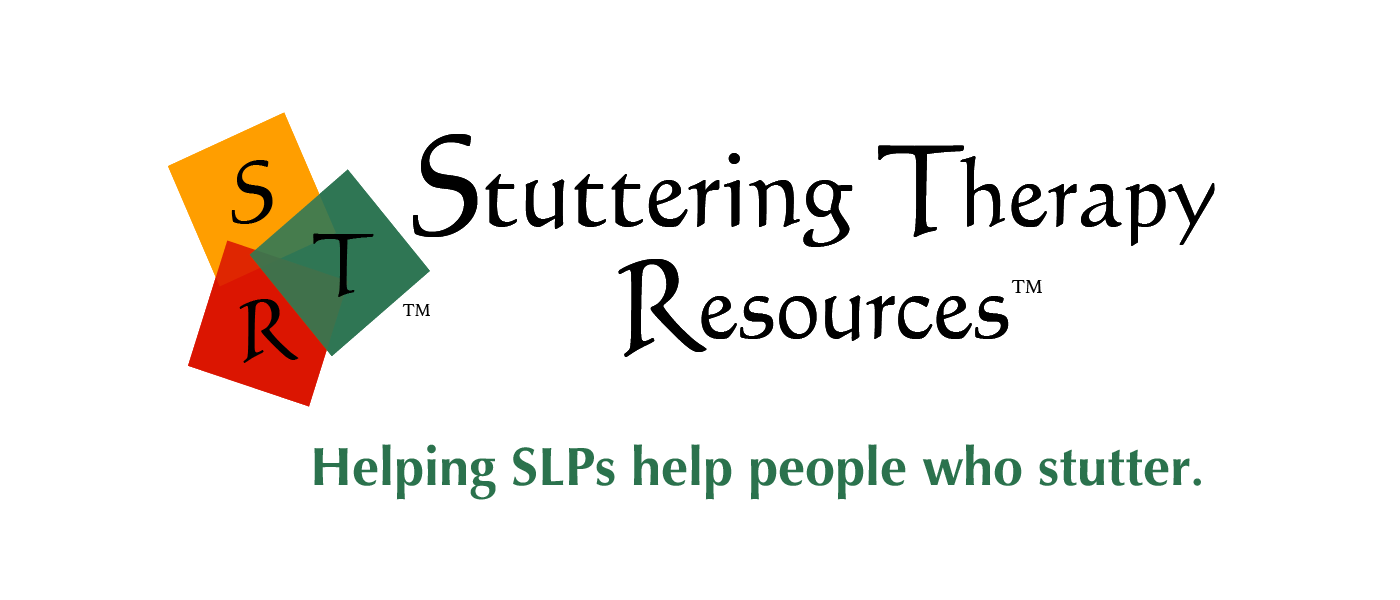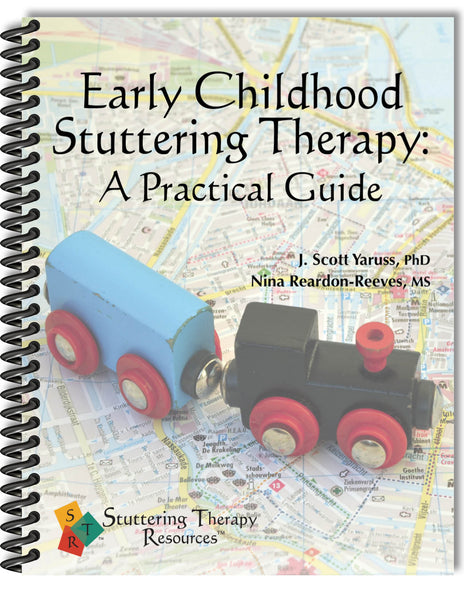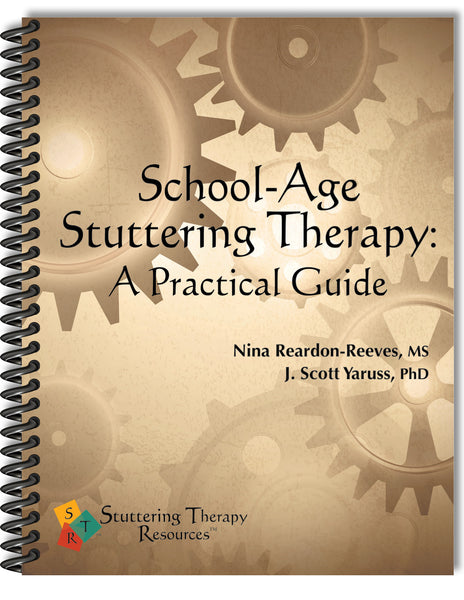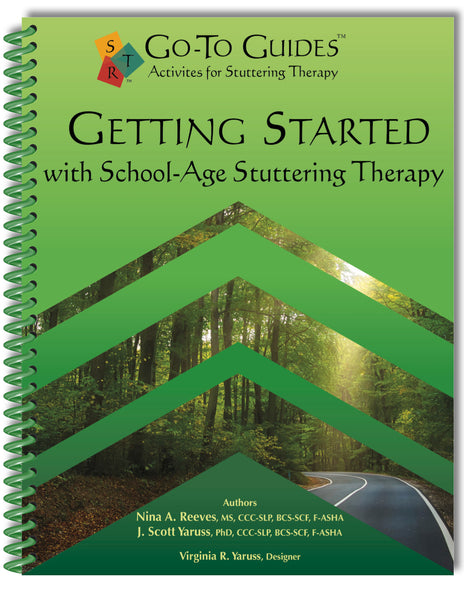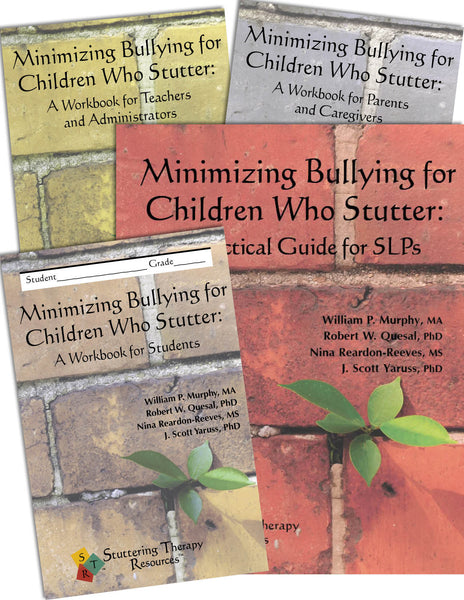Our Best-Selling Therapy Guides Are Now Available in Print and Digital Versions
SLPs Love STR!
Early Childhood Stuttering Therapy is an amazing read and extremely practical. I don’t remember enjoying a manual like this in. . . EVER! It is informative and easy to understand—and the visuals and handouts are so useful.
Thank you for the OASES assessment. Using it this week with two 4th and 5th grade students was so enlightening. I wish there were assessments like this for ALL the communication disorders!
Just ordered ANOTHER copy of School-Age Stuttering Therapy: A Practical Guide—I keep lending mine out and not getting it back! Thanks for a great resource!
As an SLP and person who stutters, I definitely love Stuttering Therapy Resources and all it offers the field of speech-language pathology—books, blog, and social media.
Just wanted to write a quick note to say a HUGE thank you to Scott and Nina for the well-crafted, practical videos for parents in this time when communication is more crucial than ever. The videos say exactly the message I wish to deliver to "my parents."
I had the most powerful and moving IEP of my career yesterday, and it was all in thanks to you! You have helped me see stuttering in a whole new light, and it has already made an impact on others.... so... THANK YOU!
Practical Thoughts Blog
Understanding Stuttering Through A Wide-Angle Lens: Information for Parents and Caregivers

As a parent or caregiver of a child who stutters, it is natural to be concerned about your child's speech and curious about how to help them. We hope this blog is one of many resources that can build your knowledge and understanding of your child’s experience of stuttering. Because stuttering is a neurologically based speech difference, there are no easy ways to help children...
What is my current definition of stuttering?
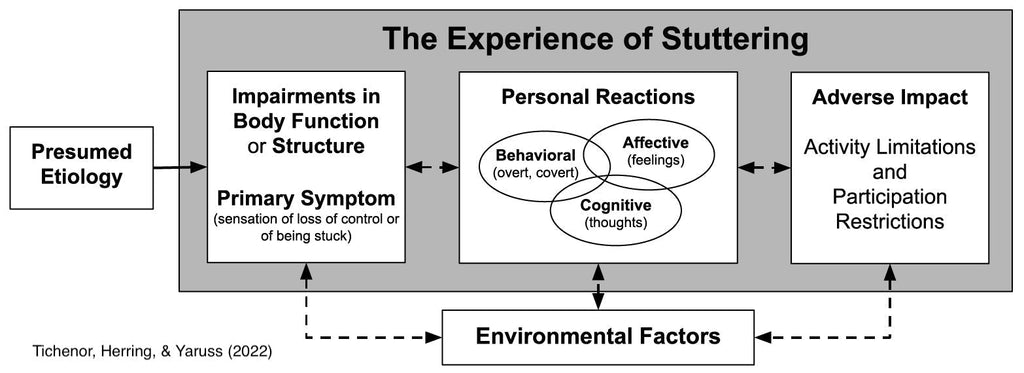
The other day, I received an email asking me what my current definition of stuttering is... My first thought was, well, do you have an hour? There's so much to say! Plus, it's sort of a work in progress, as my understanding is always changing based on recent research and new insights from people who stutter. The inquiry challenged me to type out my current...
Counting Stutters Is a Waste of Time!
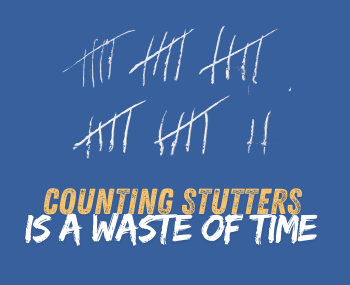
When assessing stuttering, counting stutters does not reflect the overall experience of the person who stutters. Speech pathologists can stop counting stutters because listeners cannot observe stutters that a person experiences, the nature of stuttering is that it is always variable, some people who stutter can appear fluent by altering their communication in unhelpful ways, and stuttering is a complex communication difference, and cannot be...
If Stuttering Is Verbal Diversity, then Is It Still a Disorder?

Stuttering is a disorder and a difference. Stuttering is a disability if the person who stutters experiences negative impact because of their stuttering. Confusion regarding specific terminology in the neurodiversity era provides us an opportunity to clarify some of the terminology that can be confusing for clinicians and caregivers alike. These discussions about terminology can enhance our understanding of the life experiences of those who...

